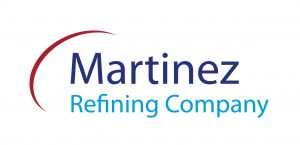Marathon Petroleum Corporation has announced it is transitioning its Martinez area refinery to “idle operating status” April 27 because of reduced fuel demands during the COVID-19 pandemic.
 Meanwhile, PBF Energy has sold five steam methane reformer (SMR) hydrogen production plants – two of which are on its Martinez campus – to Air Products and Chemicals for $530 million and is cutting capital spending by $240 million and its operating spending by another $125 million.
Meanwhile, PBF Energy has sold five steam methane reformer (SMR) hydrogen production plants – two of which are on its Martinez campus – to Air Products and Chemicals for $530 million and is cutting capital spending by $240 million and its operating spending by another $125 million.
The refiner said it is cutting corporate overhead by $20 million, primarily through salary reductions.
Marathon made its public announcement that public health responses to COVID-19 “have negatively impacted the global economy and demand for our products.” The change to an idle operating status should let the refinery reduce costs but keep its regular employees working, the announcement said.
The number of contractors would be reduced, “which will decrease the density of people and allow for easier social distancing,’ the announcement said.
“Idle status means that our processing units are no longer actively making transportation fuels and other refined products and are instead being maintained in standby mode until we return to normal operations,” said Patty Deutsche, director of government and public affairs for Marathon Petroleum Corporation.
“During this time, some areas of the plant will remain in operation, including wastewater treatment, steam system and vapor recovery and flare systems,” she said. “We will also continue safety checks and continue to comply with applicable environmental regulations. And we will still be meeting customer commitments, utilizing our integrated network of assets.”
The company plans to cross-train employees in new areas during the idle status, she said. Marathon already is providing employees with personal protective equipment and has adopted other state-ordered practices, such as social distancing, hygiene and cleaning, to combat the virus.
 Refinery staff also will have time to work on mandatory training and safety classes, and will be planning projects that will be undertaken “once we return to normal.” The situation is being monitored and evaluated, “and it is our intent to return to normal operations once demand levels support doing so,” according to the Marathon announcement.
Refinery staff also will have time to work on mandatory training and safety classes, and will be planning projects that will be undertaken “once we return to normal.” The situation is being monitored and evaluated, “and it is our intent to return to normal operations once demand levels support doing so,” according to the Marathon announcement.
It takes seven to 10 days to take a refinery to idle status, and from one to two weeks to bring it back to full operation, Deutsche said.
Another Martinez refinery also is making adjustments during the pandemic.
New Jersey-based PBF Energy, the sixth largest American oil refiner, began its purchase of the former Shell Martinez Refinery from Royal Dutch Shell in June 2019 and completed the transaction in February.
The company announced its cutbacks would affect the 157,000 barrels a day dual-coking Martinez refinery. That campus has two of the steam methane reformer hydrogen production plants Air Products has bought. Others are in Torrance in Southern California and in Delaware City, Del.
Air Products already owns a third hydrogen plant on the Martinez refinery campus, having bought it in 1996, said Ann Notarangelo, Community Relations manager at the Martinez Refining Company. Air Products will be expanding its existing team in conjunction with the purchase.
“We intend to retain our folks because they are cross-trained on other refinery assets,” Notarangelo said. Hydrogen is critical for removing sulfur and nitrogen to reduce emissions from fuel to meet CARB (California Air Resources Board) standards, the strictest emissions limits in the world.”
Those providing third-party services also will be reduced, the company announced.
“We are operating Martinez at minimum rates due to decreased demand for gasoline and jet fuel over the past several weeks, which is a direct result of social distancing orders,” Notarangelo said. A PBF news release said it has a throughput reduction of 30 percent below original expectations.
“As has been reported, statewide and local ‘stay at home’ and ‘shelter in place’ orders have resulted in unprecedented, rapid demand destruction for both gasoline and jet fuel around the world, including California and the Bay Area,” Notarangelo said.
However, there’s still a need for diesel, “and really, for all fuels, which is why refineries are considered an essential business,” she said. “However, demand for our products is down in every category.”
The refinery’s day-to-day operations and plans are confidential, she said, and her company doesn’t forecast the future of the fuel market, but as market conditions change, the refiner will adjust its operations.
PBF has taken other aggressive steps in response to the pandemic’s impact on the industry.
More than half of PBF’s corporate and non-represented employees have seen their salaries reduced. Oil processing is expected to drop from 895,000 to 627,000 barrels per day.
Nor have its top officers been spared. Chairperson and Chief Executive Officer Thomas Nimbley’s salary has been cut by 67 percent and compensation to the Board and executive leaders by 50 percent. The company’s quarterly dividend of 30 cents a share has been suspended, which is expected save $35 million each quarter, the company announced.
“We are focused on generating and preserving the liquidity needed for the duration of the near-term, economic impacts of stay-at-home orders and the longer-term recovery of demand for our products,” Nimbley said.
“Discussions with suppliers and service providers are actively occurring and we’re grateful for their cooperation,” he said. “We have not taken any of these decisions lightly and recognize how our decisions affect others. We will continue to adjust our operations to the evolving market conditions and will provide further updates as appropriate.”
David Hackett, president of Stillwater Associates, a transportation fuels market analyst firm, said all fuel oil companies are trying to survive the dramatic drop in demand for their products. Some are shutting down while others are reducing operations to minimal levels.
Fuel prices are dropping to less than $3 a gallon in California, according to the American Automobile Association (AAA) and to less than $1.50 in other states.
Some oil traders said last month that oil consumption could drop as much as 10 percent during the pandemic as more people are told to shelter in place and have parked their vehicles. But the Energy Information Administration (EIA) has predicted jet fuel consumption could drop by as much as a third, and gasoline consumption could decrease by 25 percent.
As a result, most oil companies, including those operating in the San Francisco Bay Area, have announced cutback strategies. The reduction in demand is expected to reduced the amount of gasoline tax revenues cities like Martinez receive for road maintenance.
On Monday, oil prices plunged below zero on Monday as demand for energy collapses amid the coronavirus pandemic and traders don’t want to get stuck owning crude with nowhere to store it.
Stocks also slipped on Wall Street, with the S&P 500 fell 1.8% to 2,823.16, but the market’s most dramatic action was by far in oil, where benchmark U.S. crude for May delivery fell more than 300% to settle at negative $37.63 per barrel.
The EIA said it could take more than 18 months for transportation fuel demand to return to pre-COVID-19 levels.






One Reply to “Martinez refineries adjusting to coronavirus crisis”